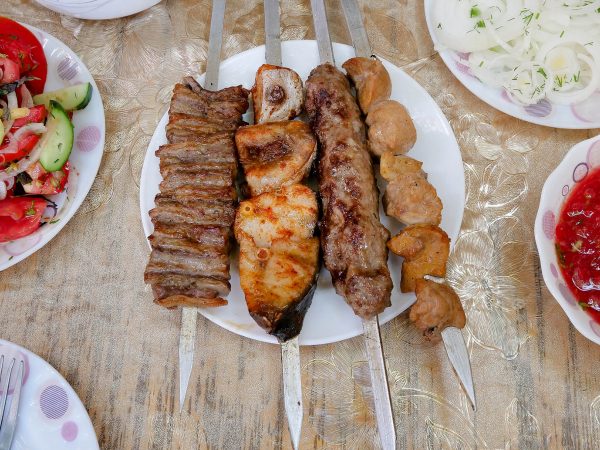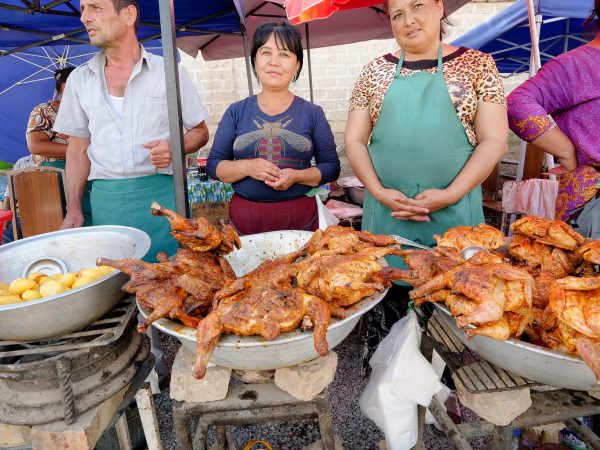

After spending time in Kolkata, I had an opportunity to visit a friend of mine in the Northeastern Indian region of Nagaland.
Eating pork is a big part of the local culture, especially around holidays and celebrations. I got to taste many different Naga food dishes, including lots of pork, fish, and some incredible chili paste sauces (similar to Thai nam prik chili sauces).
But one day, we got Grandpa to show us the real way to cook and eat pig intestines, the Naga way!
First, he grabbed a fresh banana leaf, which would later be the serving platter for our hot roasted intestines.

The intestines took to the chopping block and were sliced into 3 – 4 inch chunks.
Get exclusive updates
Enter your email and I’ll send you the best travel food content.

Grandpa then heated up the fire until we had a nice flame going.

Grabbing some bamboo, grandpa then sharpened some skewers before piercing each intestine on the skewer. Prep work done, we were ready to cook these Nagaland intestines!

Forget about slow roasting them over hot coals, in Nagaland, intestines are placed directly into the flames so they cook fast, char on the outside, and drip with grease – that’s the way!
They didn’t take much longer than a few moments, and a couple of the intestines even caught on fire as grandpa blew them out. When the intestines were fully cooked, grandpa placed them on the banana leaf and they were ready to be served.

He sliced them into smaller pieces before we dug into these natural pig sausages.
They were very fatty and had the flavor of a gamey pig. That being said they were pretty delicious, especially when sprinkled with a bit of salt.

The next day we had the small intestines, cooked in the same way. These were even better, like crunchy pieces of pork jerky that melted in my mouth.
Similar to Korean soondae, they don’t look too good, but they sure are marvelously tasty!
Video
Here’s a quick video of eating these pig intestines in Nagaland!
Do you like intestines?
Get exclusive updates
Enter your email and I'll send you the best travel food content.



